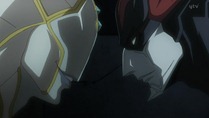 |
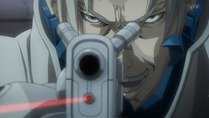 |
 |
Anime’s fastest-moving adaptation in ages screams to a close with a finale straight out of the Alan Moore playbook.
I’ll give you my usual Zetman disclaimer – I really have no idea how much of that ending is from the manga, and how much of it is anime original. Given that the manga is still ongoing after more than ten years it’s safe to assume much of it is the latter, though for me it felt pretty consistent with the overall tone and feel of the story. I’m also going to assume that fans of the manga were going to be displeased by the ending whatever it was, given that they’ve been horrified by the rushed pacing of of the anime from the beginning.
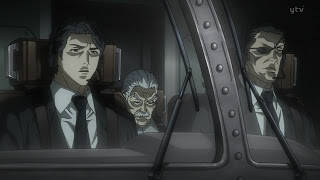 It’s seemed to me from the beginning that Masakazu Katsura was trying to create an extremely faithful manga take on the dark superhero genre pioneered by people like Moore and Frank Miller, which has spawned countless incarnations and imitators in the U.S. and become almost a default style for superhero comics. There was no real clue to this in his earlier works, but that can’t mask the fact that Masakazu-sensei is clearly a fan, and that’s what comes through in Zetman. This is clearly the work of a writer who loves the genre, and cares very much about getting all the big emotions and little details right. And in doing so, he’s succeeded in delivering something – even in abridged form – that feels more authentic that a lot of modern incarnations that seem to be going through the motions. I’m sure much of the essence of the story was lost in the process of adaptation and now that the anime is over I’ll be seeking out the manga, but the anime still manages to capture the heart of the genre for me.
It’s seemed to me from the beginning that Masakazu Katsura was trying to create an extremely faithful manga take on the dark superhero genre pioneered by people like Moore and Frank Miller, which has spawned countless incarnations and imitators in the U.S. and become almost a default style for superhero comics. There was no real clue to this in his earlier works, but that can’t mask the fact that Masakazu-sensei is clearly a fan, and that’s what comes through in Zetman. This is clearly the work of a writer who loves the genre, and cares very much about getting all the big emotions and little details right. And in doing so, he’s succeeded in delivering something – even in abridged form – that feels more authentic that a lot of modern incarnations that seem to be going through the motions. I’m sure much of the essence of the story was lost in the process of adaptation and now that the anime is over I’ll be seeking out the manga, but the anime still manages to capture the heart of the genre for me.
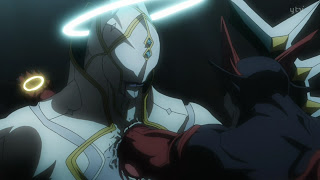 Now, some may say that the series tacked a little too close to the wind when it comes to stuff like “The Dark Knight” as portrayed by Moore, Miller and Christopher Nolan (poetic justice perhaps given Nolan’s uncredited plagiarism of Kon Satoshi with “Inception”) especially when it came to the ending. And that could set off an argument about the line between homage and imitation, but for me Zetman always managed to stay on the right side of the line. And let’s face it, there are rules and conventions for this sort of fiction that are awfully hard to ignore outright, and it’s hard to imagine any sort of ending for Jin and Kouga besides the one TMS ultimately chose here. Viewers will have to settle those questions for themselves.
Now, some may say that the series tacked a little too close to the wind when it comes to stuff like “The Dark Knight” as portrayed by Moore, Miller and Christopher Nolan (poetic justice perhaps given Nolan’s uncredited plagiarism of Kon Satoshi with “Inception”) especially when it came to the ending. And that could set off an argument about the line between homage and imitation, but for me Zetman always managed to stay on the right side of the line. And let’s face it, there are rules and conventions for this sort of fiction that are awfully hard to ignore outright, and it’s hard to imagine any sort of ending for Jin and Kouga besides the one TMS ultimately chose here. Viewers will have to settle those questions for themselves.
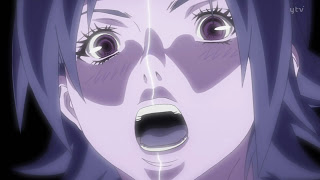 For me, all I can do is speak to the anime in its own right and not worry about the manga. It was a story that was steeped in pain and loss right from the beginning, so it’s no surprise that it ended the same way. Hanako’s end certainly qualifies as one of the more unabashedly bleak I’ve seen – turned into a Player by the man she loves and ultimately cut in half by a glory hound. One casualty of the breakneck pacing in Zetman is clarity, and I’m not quite sure what we’re meant to believe with Hanako – my take is that she was unaware of her true nature (thus, the headaches) and that she wasn’t knowingly deceiving Jin, who she truly did love.
For me, all I can do is speak to the anime in its own right and not worry about the manga. It was a story that was steeped in pain and loss right from the beginning, so it’s no surprise that it ended the same way. Hanako’s end certainly qualifies as one of the more unabashedly bleak I’ve seen – turned into a Player by the man she loves and ultimately cut in half by a glory hound. One casualty of the breakneck pacing in Zetman is clarity, and I’m not quite sure what we’re meant to believe with Hanako – my take is that she was unaware of her true nature (thus, the headaches) and that she wasn’t knowingly deceiving Jin, who she truly did love.
The fact that Jin was ultimately able to forgive Kouga for killing her speaks a lot to the fact that Kanazaki ultimately succeeded – not only did Jin’s human half always remain dominant, but he became an exceptionally good human as well. The end sequence with Haitani was rather rushed (join the club) but it seems that his mission was an abject failure because even in the face of Hanako’s death, Jin never gave himself over to the dark side and Haitani died for nothing. The comparison of Hanako’s situation with that of the family in the burning building was a nice way to tie the whole debate over what heroism and justice were – and thus, Jirou’s arc – together.
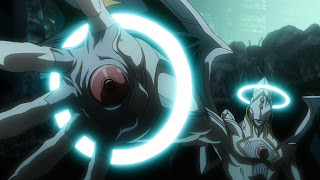 It could be argued that Kouga ended up having a much larger arc than Jin in the conventional sense. Once we got past the initial stages Jin didn’t really change all that much – he was always a fundamentally good young man trying to keep the darkness that was a part of him in check (there’s a metaphor for you). With Jin it was mainly circumstances that changed – with Kouga it was a true psychological and philosophical journey, and a trial by fire. Let’s not forget that in the end Kouga killed his father (and his mother) exactly as Jirou had intended, and he pulled that trigger fully intending to kill Jin. He ended up pretty much dancing to Jirou’s tune and accepting Jirou’s world view. Jin, by contrast, never stopped being Jin – avoiding the spotlight, living amongst the invisible in society, avoiding those he loved for fear of bringing tragedy down upon them. So which one of these two of these two is the “Dark Knight” – who’s the protagonist of this piece after all? One of the most interesting elements in this very traditional dark superhero tale is that Masakazu has effectively split the stock character in half, and explored the journey from two separate perspectives.
It could be argued that Kouga ended up having a much larger arc than Jin in the conventional sense. Once we got past the initial stages Jin didn’t really change all that much – he was always a fundamentally good young man trying to keep the darkness that was a part of him in check (there’s a metaphor for you). With Jin it was mainly circumstances that changed – with Kouga it was a true psychological and philosophical journey, and a trial by fire. Let’s not forget that in the end Kouga killed his father (and his mother) exactly as Jirou had intended, and he pulled that trigger fully intending to kill Jin. He ended up pretty much dancing to Jirou’s tune and accepting Jirou’s world view. Jin, by contrast, never stopped being Jin – avoiding the spotlight, living amongst the invisible in society, avoiding those he loved for fear of bringing tragedy down upon them. So which one of these two of these two is the “Dark Knight” – who’s the protagonist of this piece after all? One of the most interesting elements in this very traditional dark superhero tale is that Masakazu has effectively split the stock character in half, and explored the journey from two separate perspectives.
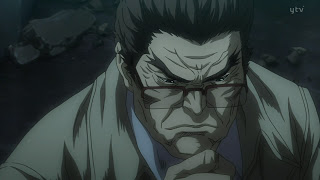 I’m disappointed that so many threads of the story were never really developed to their potential but again, I guess that’s a concession to time. Konoha’s role in the story was never well-defined. Was she a love interest? A friend? She saw Jin so rarely that there was never a chance for their relationship to develop, and she ended up mostly as an observer and occasional victim. Then there was The Sweeper, and the bartender/head of EVOL – and EVOL generally, for that matter, which ended up being a tease more than an actual plot element. And who was the guy who’s shadowy profile we saw in the alley at the end – was I supposed to recognize him? Oh, for 26 episodes or better yet 52 – there’s so much more that could have been with this story.
I’m disappointed that so many threads of the story were never really developed to their potential but again, I guess that’s a concession to time. Konoha’s role in the story was never well-defined. Was she a love interest? A friend? She saw Jin so rarely that there was never a chance for their relationship to develop, and she ended up mostly as an observer and occasional victim. Then there was The Sweeper, and the bartender/head of EVOL – and EVOL generally, for that matter, which ended up being a tease more than an actual plot element. And who was the guy who’s shadowy profile we saw in the alley at the end – was I supposed to recognize him? Oh, for 26 episodes or better yet 52 – there’s so much more that could have been with this story.
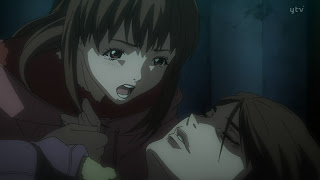 I ended up liking Zetman quite a bit, in spite of the ever-present awareness that I was only getting a taste of what the story and characters truly had to offer. The fights were well-choreographed, and the intentionally ugly-yet beautiful elements of the visual style suited the material well. In a strong season like this one it ends up getting rather lost, but it deserves a better fate than that. The fact that a quite popular manga like this got only one cour speaks, I think, to the widening gap between the manga and anime fan base. A series like this was never likely to succeed as an anime – it’s too violent and subtle for younger kids, and offers no fashionable draw for the modern otaku. Without toy or BD/DVD sales an anime simply isn’t going to make money, and there’s no “in” for Zetman in those markets. In manga the fanbase is still diverse enough (and production cheap enough) for a series like this to survive even in a mainstream publication, but the anime market has become so niche-oriented and specialized that there’s simply no room any more for series without a commercial hook – certainly not for them to receive an extended run, at the very least. It’s a shame TMS only had one cour to tell the manga’s story but in retrospect, it’s surprising that it even received that. Under trying circumstances, I think they did a pretty good job.
I ended up liking Zetman quite a bit, in spite of the ever-present awareness that I was only getting a taste of what the story and characters truly had to offer. The fights were well-choreographed, and the intentionally ugly-yet beautiful elements of the visual style suited the material well. In a strong season like this one it ends up getting rather lost, but it deserves a better fate than that. The fact that a quite popular manga like this got only one cour speaks, I think, to the widening gap between the manga and anime fan base. A series like this was never likely to succeed as an anime – it’s too violent and subtle for younger kids, and offers no fashionable draw for the modern otaku. Without toy or BD/DVD sales an anime simply isn’t going to make money, and there’s no “in” for Zetman in those markets. In manga the fanbase is still diverse enough (and production cheap enough) for a series like this to survive even in a mainstream publication, but the anime market has become so niche-oriented and specialized that there’s simply no room any more for series without a commercial hook – certainly not for them to receive an extended run, at the very least. It’s a shame TMS only had one cour to tell the manga’s story but in retrospect, it’s surprising that it even received that. Under trying circumstances, I think they did a pretty good job.
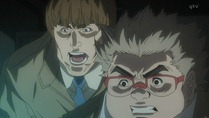 |
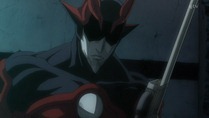 |
 |
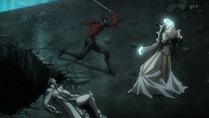 |
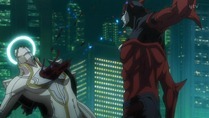 |
 |
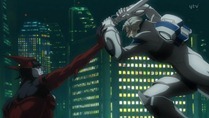 |
 |
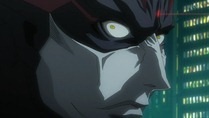 |
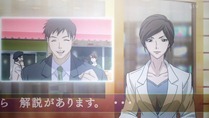 |
 |
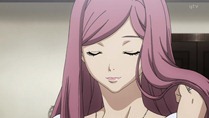 |
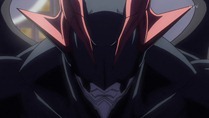 |
 |
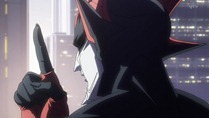 |
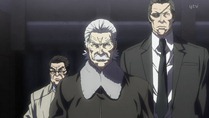 |
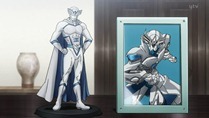 |
 |
 |
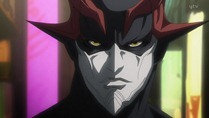 |
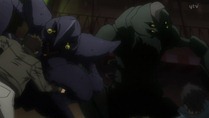 |
 |
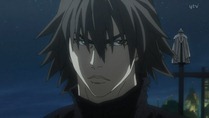 |
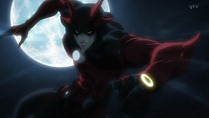 |


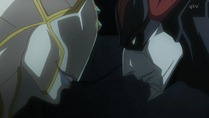
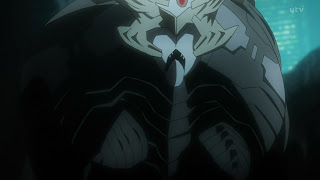
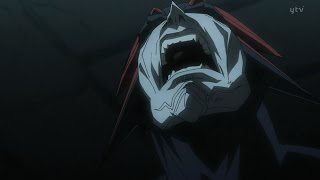
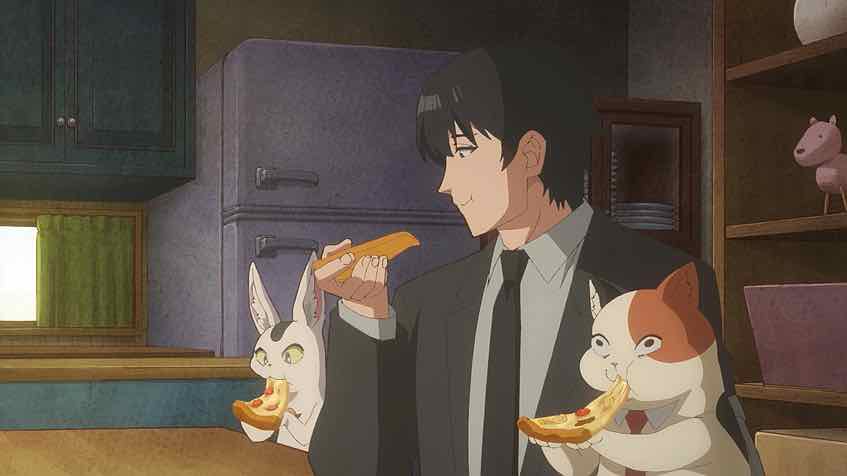
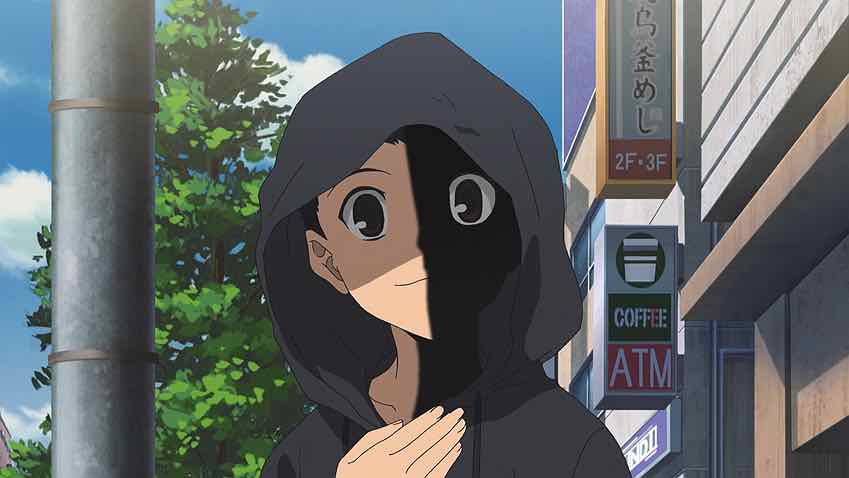
Ulisses
June 27, 2012 at 12:59 amZetman was very enjoyable. While it is true that the pacing was too fast and much of the story was never truly developed, every episode was entertaining and there was no room for boredom.
Jin and Kouga are interesting, memorable characters. However, they don't belong in the same anime. Instead of complementing each other's story, i feel that the narrative's contant change of focus between those two was very disrupting, as Zetman was more about Jin and Kouga's individual problems than the relationship between them.
The best episodes were the first one and "Kouga's really bad day". They were truly amazing and had me on the edge of my seat. I liked most of the support characters and absolutely loved the character designs.
azeriraz
June 27, 2012 at 1:09 amIt's a pity the series didn't live up to it's potential, but it was still quite a good watch.
I doubt there will be a sequel, seeing as how the manga doesn't sell that much to begin with but it would have been nice had it been a longer adaptation from the start.
admin
June 27, 2012 at 6:54 amYes, I'm not expecting a sequel here. But then, there's always the manga.
Myssa Rei
June 27, 2012 at 8:24 amAll I could do was facepalm at the developments in the last two episodes. If I hadn't read the manga, I'd have thought the show pretty decent, but the fact that I have read the manga makes me aware that the series was never going to measure up, really. Especially with the literal arsepulls that were Kouga's personality change and Hanako's use as a character.
Karura_Jiinsaru
June 27, 2012 at 4:40 pm"Now, some may say that the series tacked a little too close to the wind when it comes to stuff like “The Dark Knight” as portrayed by Moore, Miller and Christopher Nolan (poetic justice perhaps given Nolan’s uncredited plagiarism of Kon Satoshi with “Inception”)"
LOL. Now that it´s over, are you eager to blog the manga volumes? Just curious
admin
June 27, 2012 at 5:10 pmNah – I may read it but I wouldn't be blogging it. When it comes to manga I restrict myself to blogging current stuff.
Murkel
June 28, 2012 at 7:22 pmNot that bad of a conclusion in the end! I did enjoy it, just like the rest of the series, even though it doesn't quite measure up to the manga.
I feel the visuals deserve some praise. With a low budget, they managed to stay very true to the manga even though Katsura Masakazu's art is almost impossible to animate. What I really liked though was how expressive they made the facial expressions and especially the angles they used in many shots. Very cool-looking angles which work extremely well in a series like Zetman.
I do recommend you give the manga a chance, Enzo, especially now that the summer season looks like a breather. 180 chapters may seem like a lot but they are deceptively quick to read through (short chapters, big panels).
Beckett
June 29, 2012 at 10:05 amJust marathoned half of this last night and the second half tonight. The ending was pretty much exactly as depressing as I've come to expect from Japanese entertainment. Sometimes I wonder if that country would recognize a happy ending if it fell out of the sky and kicked them in the face. But this show seemed from episode 1 like the type that wouldn't end well so I can get over it. But god DAMN, could the last 10 seconds or so have possibly been any cheesier? I literally turned my face away from the screen because I was so embarrassed for the show that had up to that point done a great job with extremely limited time resources. Liked the show and all, but man, bummer about the very end there.
Anonymous
July 1, 2012 at 7:01 pmI like Zetman a lot and subjectively–this made me go beyond its flaws. What I like about it is the characters–I was hooked early on waiting desperately each week wanting to find out more about jin, akemi, haitani… I enjoyed it every time when it portrayed the relationships between Jin and Kanzaki, Jin and Akemi…
It’s not easy for adapting a giant manga into a one-cour series; however, with only 13 episodes, the series managed to flesh out important themes like family, heroism, brutal irony. The series plays its brutal adventures well with a discerning darkness and reels me in emotionally episode by episode.
-Ronbb
Unknown
November 3, 2015 at 7:11 amDoes any one know if the series will be continued our just dropped or has a sequel? Feel like a loser but, I have been wanting for it to continue. Truly hoping it does